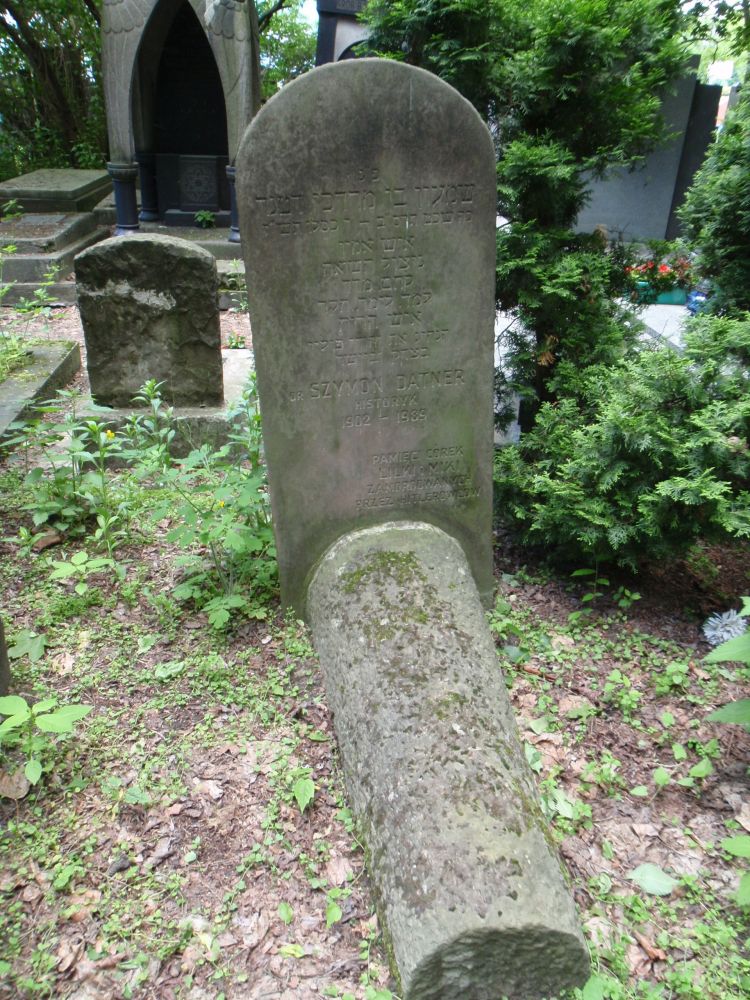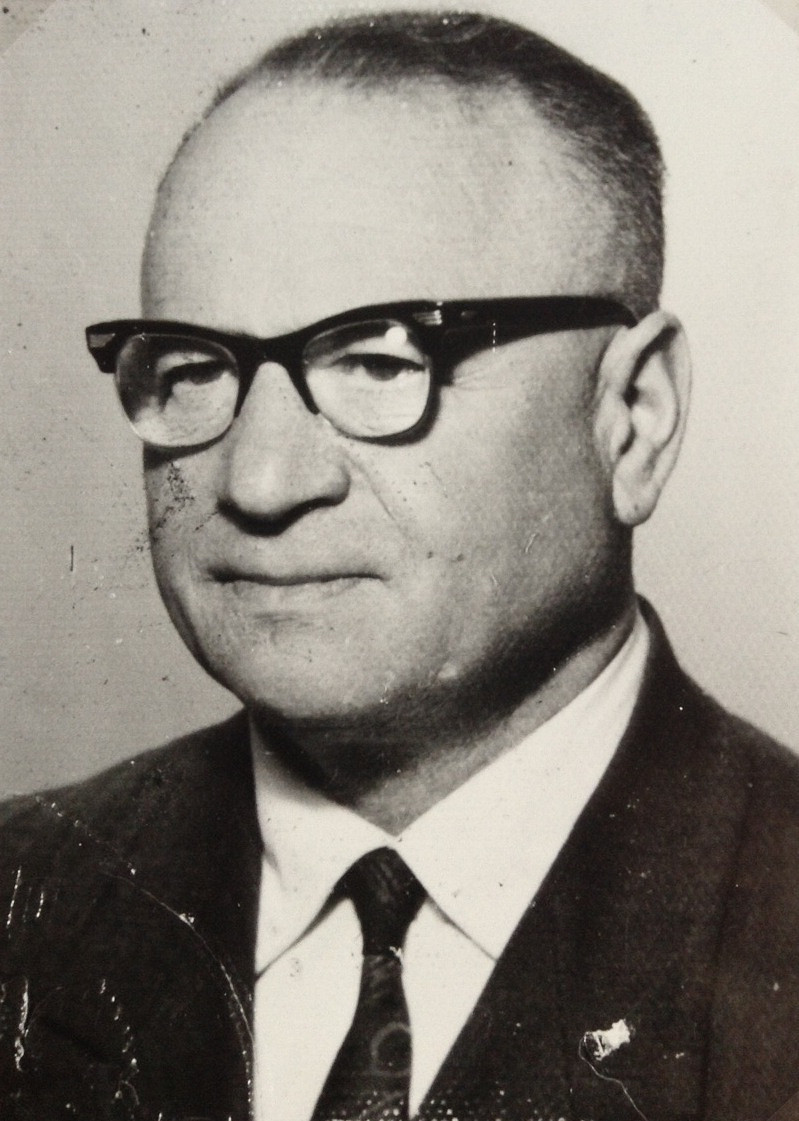- News
- Events
- Oneg Shabbat
- Collections
- Research
- Exhibitions
- Education
- Publishing Department
- Genealogy
- About the Institute
- Bookstore


Grave of Szymon Datner /
He was born in 1902 in Cracow’s Kazimierz district to a merchant family. His father — Mordechai, mother — Szprynca, a daughter of Bronisław, emigrated to Palestine before the war and this is why they survived. All other members of his family, brothers and sisters, perished. Szymon Datner studied at UJ, where he was granted a PhD from anthropology. However, he was not able to take up research work due to anti-Semitism. He got a job in a Hebrew gymnasium in Białystok. He had worked there until the outbreak of the war. He taught PE, History and Singing. I do not know if it was his choice, or only this kind of job they were able to offer to him. One way or another, he was always fit: he went climbing, horse riding; he exercised every day and on Sundays went for long walks.
He settled down in Białystok and had two daughters: Miriam and Szoszana, Lilka. After the outbreak of the Soviet-German war, he ended up in the Białystok ghetto. Just before the uprising, he was staying in the woods of the eastern part of the region. It was the order at that moment. Those who were able to survive in extreme conditions were to save themselves. In the ghetto, he managed to get a weapon. When he was forcing his way through to get to the partisans, he killed the first German. It was nothing to be proud of. That was the fate that befell him. In the ghetto, he lost his wife and both daughters. The elder one was a member of an underground organization. She perished fighting. It is not known how the mother and the younger daughter died. After the war, every year, on the anniversary of their deaths, he would lock himself in his room for the whole day. It was his Shiva, mourning. He wrote letters to them, of which none survived.
He joined the Soviet partisans in the eastern part of the Podolia Voivodeship. He lived to witness the liberation. He became the head of the Provincial Jewish Committee in Bialystok. He collected information and reports about the Holocaust. He knew what had happened in Jedwabne and nearby towns. He was the first to write about it. Still today, in the Archive of the JHI, you can find accounts written by him. In 1946 he announced a book about the uprising in the Białystok Ghetto. At the end he wrote, „The Germans do not deserve to be treated as a European nation. They should be displaced from our continent.” He was reproached for these impassioned words by the defence in a German trial of the criminals from Białystok.

After the war he remarried. His wife Edwarda Orłowska was at the time the head of the regional authorities of the Polish Workers’ Party. When at the beginning of 1947 the situation got more stable, he went across the unguarded border, through the snow-capped Alps to his father. He wanted to tell him what had happened to their family. The ship was stopped by the British and Datner ended up in an internment camp in Cyprus. He was made a Jewish commender of the camp and he gave speeches to the British explaining to them the war fate of the Jews. He managed to escape from the camp. On a small, fishing rowboat he and his friend got to Lebanon. He was arrested there and as a result imprisoned for a few months. He got to Israel. Thanks to his wife, he was given a passport and was able to come back to Poland.
Datner became an employee of the Jewish Historical Institute. It was not an easy time. He protested against adding to his article in the "JHI Bulletin' words condemning Joint as a branch of Zionism. In 1953, the employees, on the rising tide of anti-Jewish campaign, were to pass a resolution condemning Zionism. He showed incredible civil courage at the time. He was the only one to abstain from voting. The next day, Director Bernard Mark gave him notice. He went to a jobcenter. For almost three years he worked as a bricklayer. After October, he was able to start working as a historian again, but he did not want to go back to the JHI. For the next twelve years he worked for the Commission of Nazi Crimes. He wrote then a few books, including the ones about the crimes of the Wehrmacht in 1939, about Italian prisoners-of-war, who were imprisoned by the Germans. He compiled a collection of accounts of the Polish who rescued the Jews during the war. He qualified as a university professor. He was fired in 1968 along with respected director, J. Gumkowski. He could already retire. He was offered the post of the director of the JHI. He accepted it, but a few months later, after an argument with one of the colonels from work, he resigned. Anyway, he was under constant pressure and surveillance of SB.
Always creative and strong, demanding a lot from himself and close family. He had, as they said, a strong personality. He was devoted to his daughter Helena and granddaughter Rut. He was like Job, given a second chance. He set up another home. He wrote and learned languages.
I met him during a clean-up the Jewish cemetery in Warsaw campaign. It was the beginning of the 70s. He taught us, students, what it meant to be a Jew; he taught Hebrew songs. I remember one of them: Oh how good it is to sit among friends. It is a fragment of a Psalm. Singing: Hine Mah Tov, I always think about him.
He died on 8th December, 1989 and was buried in the Jewish cemetery in Warsaw.